#Paul Scheerbart
Text
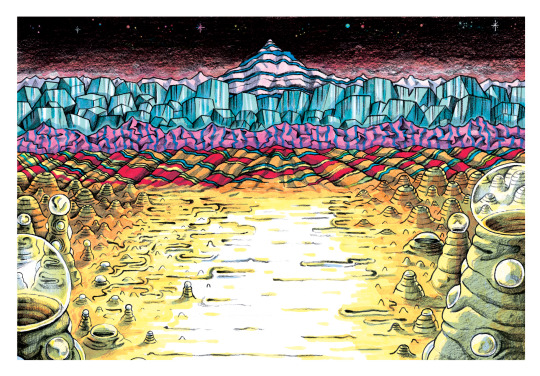

Illustration pour la traduction du livre de Paul Scheerbart (1863-1915) aux éditions Othello : La Grande Révolution (1902 - Insel Verlag)
20 notes
·
View notes
Text
Bruno Taut – Şehrin Tacı (2022)
Bruno Taut imzalı ‘Şehrin Tacı’, 20. yüzyıl mimarlık yazınının önemli kitapları arasında yer alıyor.
Bir “mimarlık ütopyası” olarak tanımlanabilecek olan ‘Şehrin Tacı’nda, Paul Scheerbart, Adolf Behne ve Erich Baron’un metinleri de bulunuyor.
Kitabın önemli bir özelliği ise, anlatımda pek çok görsele yer verilmesi.
Bu Türkçe basımda, ‘Mimarlık Öğretisi’nde olduğu gibi, tüm görseller…

View On WordPress
2 notes
·
View notes
Text
Der Glaspavillon von Bruno Taut in Köln: Ein historischer Meilenstein der Architektur
Heute tauchen wir ein in die Welt der Literatur, genauer gesagt in Manfred Schneiders Werk “Transparenztraum: Literaturpolitik, Medien und das Unmögliche”. Wir beginnen mit einem Auszug aus Kapitel 7, “Die Träume von 1900: Spirituelle Glashäuser von Bruno Taut”, eingeleitet durch ein Gedicht von Paul Scheerbart: “Im Glashaus brennt es nimmermehr, man braucht da keine Feuerwehr.”
Die legendäre…

View On WordPress
0 notes
Link
#20.Jahrhundert#Avantgarde#Berlin#deutsch#Expressionismus#Gesellschaft#Kunst#Künstler#Liebe#Moderne#Parodie#Roman#Satire#Sturm
0 notes
Text
Unveiling the Unconventional:
404 Error is a collaboration between undergrounders on an undergrounder press, resonating with the spirit of rebellion against societal norms. Its pages are imbued with the reign of capitalism and schizophrenia, reminiscent of the genre known as Noise, characterized by expressive copy-and-paste techniques. The book becomes a symphony of overabundant madness, akin to watching dead empires decay on the 88th floor of a concrete block tower, as described by Peppy Ooze. This strangeness and unconventional approach captivate readers, offering a unique perspective on the human experience.
The Hero of Error:
As Kenji Siratori asserts, the true hero of 404 Error is error itself. Through its perspective, we catch glimpses of a collapsing world, a prescient work that serves as a wake-up call for those lost on the hollow surface of social media. The book offers a gateway to the best literary work for hardweb building, a concept that challenges traditional boundaries and invites readers to explore new frontiers. In the midst of a disquieting and undesirable society, RG Vasicek and Zak Ferguson delve into the bleak kernel of human-crafted landscapes, revealing the psychological effects of industrial, societal, and ecological developments. The authors, in their exploration of icy crusts and kitchen garbage, go beyond human perceptions, tapping into realms transcending our understanding.
The Digital Unraveling:
Shane Jesse Christmass's analysis highlights the immersive nature of 404 Error, where single cells become immersed in a concrete code. The authors masterfully navigate the landscapes of crystal ashtrays, access zones, and particles of synthetic telepathy, capturing the disconcerting lime green glow of a society veering towards darkness. The blurb itself, akin to a standard response code, captures the essence of link rot and funky caching, while drawing inspiration from the supernatural works of authors like Paul Scheerbart, Frederick Pohl, and Brian Aldiss. The novel becomes a mythopoesis of electronic circuitry, where venous-stained textiles and cyanide pills coexist with toolboxes full of narcotic ampoules. It takes readers on a journey through a dystopian state projecting data streams and viruses like sensory satiation.
The Future Unleashed:
Jeffrey Howe's description unveils the interplay between the virtual and physical worlds within 404 Error. The Internet, having overtaken reality, serves as the backdrop for a narrative where hackers and users navigate a cyberscape more vivid than the tactile world. Here, every thought, dream, and desire materializes, and the only risk lies in losing one's mind. The protagonist, Darius[z], grapples with maintaining his sense of self as his connection to the virtual world falters, blurring the boundaries of his existence. Past, present, and future merge, as perception and time converge, raising questions about survival, the nature of reality, and the importance of individual agency.
1 note
·
View note
Photo










Algol - Tragödie der Macht (Hans Werckmeister, 1920).
#algol - tragödie der macht#hans werckmeister#emil jannings#john gottowt#axel graatkjær#hermann kircheldorff#walter reimann#paul scheerbart#algol (1920)#algol - tragödie der macht (1920)
120 notes
·
View notes
Photo

Paul Scheerbart
Una sorta di neurone mannaro famelico che vuole la mia disfatta, però è figo!
6 notes
·
View notes
Photo

Paul Scheerbart, German author and creator of the Glasarchitektur-manifesto
#Paul Scheerbart#Scheerbart#Danzig#Gdansk#German#Germany#Kuno Kufer#Kuno Küfer#manifesto#Glasarchitektur#architecture#expressionism#Bruno Taut#Taut#1915#1910's#1900's#1800's#1863#1860's#Berlin
5 notes
·
View notes
Text
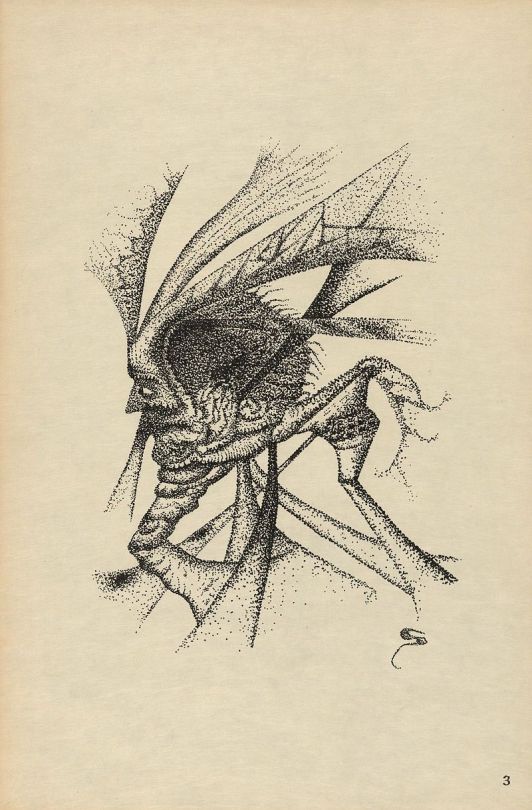
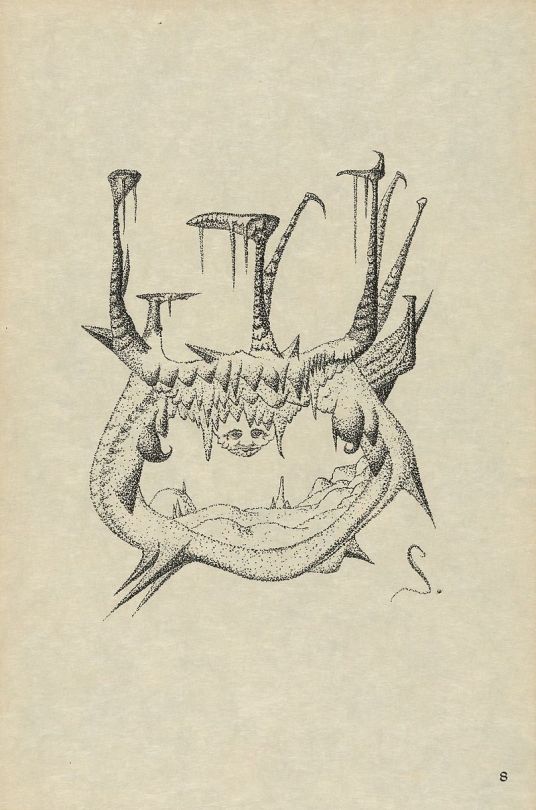
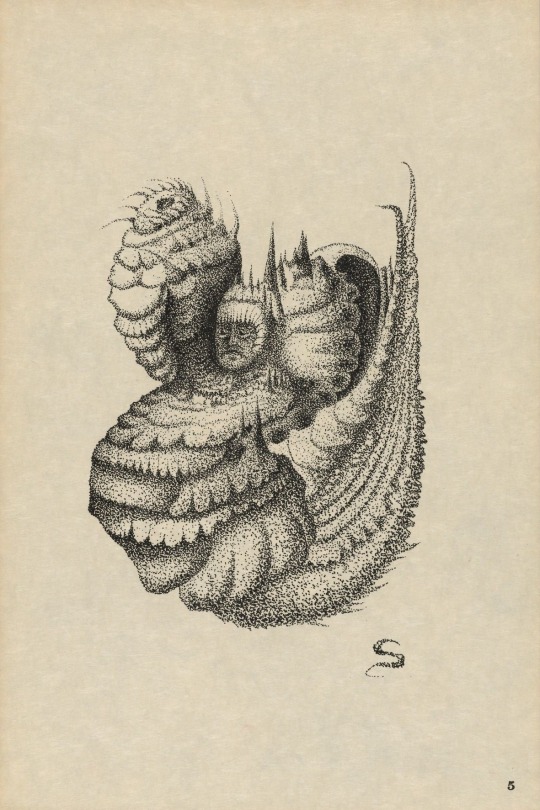
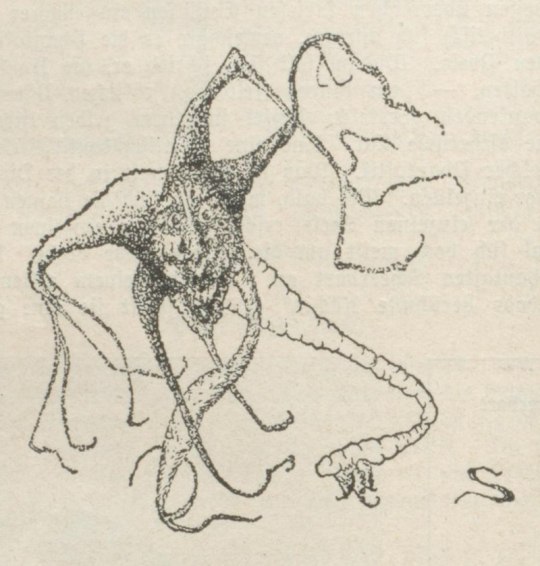
Paul Scheerbart, Jenseits-Galeri.
Ilustraciones (1907 - 1908)
1 note
·
View note
Photo

Günther Uecker,
“Hommage à Paul Scheerbart” (Scheerbartwesen), Späte 1960.
Nails and white paint on burlap, on wood.
175 x 176 cm (68.8 x 69.2 in). Photo Ketterer Kunst
#art#design#sculpture#nails#wood#form#abstract#organic#gunther uecker#paul scheerbart#photography#ketterer kunst
40 notes
·
View notes
Photo

小遊星物語
パウル・シェ-アバルト・著、種村季弘・訳
平凡社ライブラリー
カバー=ブルーノ・タウト『アルプス建築』より、「星の系」
#Lesabendio : Ein Asteroidenroman#lesabendio#小遊星物語#paul scheerbart#パウル・シェーアバルト#suehiro tanemura#種村季弘#平凡社ライブラリー#bruno taut#ブルーノ・タウト#alpine architektur#アルプス建築#anamon#古本屋あなもん#あなもん#book cover
15 notes
·
View notes
Text

Incantation. llustration, opposite page 240.
Lesabéndio: ein asteroïden-Roman
Paul Scheerbart
München: Georg Müller, 1913.
66 notes
·
View notes
Text
I was reading last night an odd little book by Paul Scheerbart, a German writer and self-described visionary inventor, who from 1907 to 1910 tried to build a perpetual motion machine in his laundry room. As he also wrote fantasy novels I initially assumed this was fiction, but I read up about him and it appears that he did spend three years trying to build it in earnest. His booklet Das Perpetuum Mobile: Die Geschichte einer Erfindung is a journal of his invention process and his grandiose expectations of his machine:
“a thousand utopian novels could be written” about the new society that will emerge thanks to his machine
his “perpeh" machine will create unlimited free energy and therefore enable humans to cover the entire planet in beautiful electric lights, making our alien neighbours green with envy (“What will other planet-dwellers say upon seeing the Earth so fabulously lit-up! We will be the talk of the entire Solar system”) as well as the fish (“the oceans can be illuminated in such a way that the fish will live in perpetual amazement”)
not to forget the fantastically megalomaniacal sentence: “Ultimately we won’t need the Sun anymore.”
he fully expects to receive an income of fourteen hundred million a year (he calculated that individual countries would be willing to pay 30 million each for the use of his invention)

it will improve transportation by finally letting us build cars with gigantic wheels (...?? “for land transportation, giant wheels will in my opinion roll much faster to their destination than the little wheels we commonly use.”)
in fact it will revolutionise transportation to such a degree that all country borders will dissolve, as well as national languages
“but”, he writes, reasonably enough, “the German language must be preserved, or else my books will become wholly unintelligible, and that would put me in a mild frenzy”
he envisions one of his machines combined with a kite as the ideal new method of capital punishment: simply fasten the criminal to a perpetual motion machine powered-kite and let him ascend into the clouds, never to return.
but he also worries a lot about all the ways his invention might be used for evil, which makes him feel better about the repeated failure of his endeavour (“If after the invention of the Perpeh, things become stupider than before... then I really ought to be careful and not see it to the end. So I’m actually quite happy that the device isn’t really working today. And tomorrow it will not work either—I would bet. This comforts me a bit.”)
his friend Erich Mühsam later recalled that Scheerbart concluded his three years of research by telling him: “The perpetual motion machine is done. It doesn’t move.”
It’s a trainwreck of a diary but an oddly delightful read. One of his translators called it a “two-and-a-half-year-long tantrum of the imagination.”
#books#findings#he was so earnest#i can't get over the sentence ''Schließlich brauchen wir die Sonne gar nicht mehr''
421 notes
·
View notes
Photo

‘Paul Scheerbart’ as painted in 1910 by Oskar Kokoschka (1886-1980) Kokoschka was a playwright and painter. He was one of Alma Mahler’s lovers and never stopped loving her long after affair was over. He wrote nine plays, most of them written in the 1920′s and 30′s. He was Austrian and in the 1930′s he was clearly on the wrong side of the rising National Socialism and eventually moved to Britain for the duration of the war. He moved to Switzerland for the longest period of his life after the war.
12 notes
·
View notes
Link
1 note
·
View note
Quote
Se per noi fosse così facile salire più in alto, non sentiremmo il mondo come qualcosa di più grande e di immenso; dobbiamo essere continuamente respinti e schiacciati un poco per notare quanto grande sia la grandezza del grande universo; e come tale grandezza non si possa mai misurare fino in fondo.
Paul Scheerbart
6 notes
·
View notes